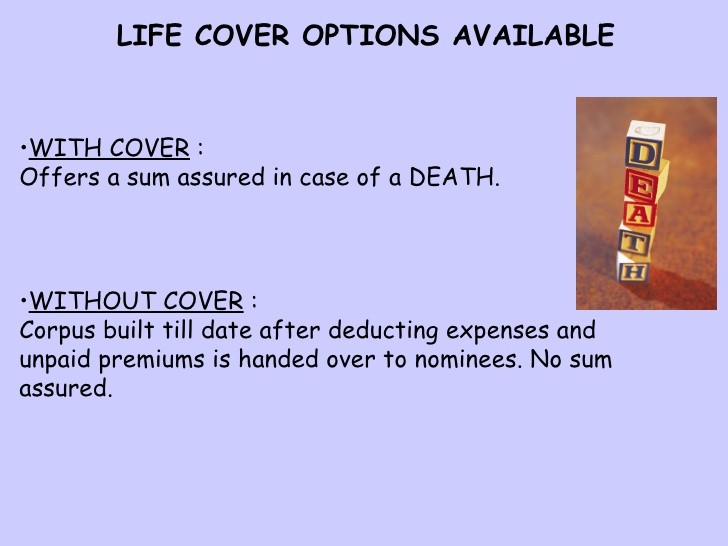Lifecycle Funds are a Terrible Investment Idea
Post on: 18 Июнь, 2015 No Comment

Lifecycle funds (also known as target date mutual funds and ETFs) are marketed mostly as a solution for folks who want to achieve a financial goal by a specific time. The most popular are those are structured for people planning on retiring, but they have also become popular in 529 college savings plans. too.
Lifecycle retirement funds manage your asset allocation such that the mix of assets becomes increasingly conservative as you get closer to retirement. Most 401(k) plans offer these funds because they dont want the responsibility of helping you make good decisions on your own.
In truth, the plan administrators dont really care if these investments work. If they did care, they wouldnt be offering them to you. Investors often choose these funds because they dont know any better, and because it seems like an easy way to reach their goals without too much work. It is easy, but it wont help anyone reach their goals. Lets take a look and see why.
Lets say you are 50 years old now. While youd like to retire now. a more realistic plan is to retire in 15 years, and youre hoping to become a millionaire by the time you collect your gold watch.
Since its 2011 now, you might buy a 2025 target date or lifecycle fund (such funds are typically targeted at years ending in 0 or 5). The fund might have 50% or 75% in equities now. Each year, little by little, the manager will shift assets into bonds over the following 15 years. What a stinky idea. Why is this such a terrible move?
1. Costs
Target date funds have a lot of hands-on management. As a result, the expenses are higher than for standalone mutual funds. Guess who pays those high costs? You, thats who. Since expense ratios are recognized as the best predictor of mutual fund performance. you shouldnt take this point lightly.
2. Limited choices
Lifecycle funds usually only tap into the funds of one fund family. Very few fund families excel in all areas. You may be better served by selecting the best funds from multiple fund families. Why restrict yourself?
3. Performance
During the 2008 market debacle, lifecycle funds which were supposed to protect people who were about ready to retire didnt do the job. In many cases, these funds suffered just as much as full equity funds.
4. Wrong timeframe
This is perhaps the most important reason why you should stay away from these funds. Heres what I mean Recall the example above. You buy a lifecycle fund when you are 50 and the fund matures when you are 65, coinciding with your retirement date. At the time, many of these funds will be invested almost entirely in bonds.
Unfortunately, that just doesnt suit your needs. Just because you hit 65 doesnt mean you dont need the money to grow. Quite the opposite, at 65, you might live another 25 or 30 years. Thats your timeframe. Whether or not you still have a job, your money has to keep working.
Note from Nickel: I just checked the Vanguard Target Retirement 2010 fund. and its currently holding a roughly 50/50 mix between stocks and bonds, which might actually wind up being too aggressive for your tastes (if you ascribe to the age in bonds rule). For comparison, the Target Retirement 2005 fund has 35% in equities.
In my opinion, lifecycle funds are yet another Wall Street invention that sounds great on paper but just doesnt deliver. Theyre not good for your 401(k), and theyre not your best IRA investment choice either.
But dont despair. You have great options. Remember, you need to invest over your lifespan. Your timeframe may be much longer than you realize.
Develop a balanced portfolio

Developing a well diversified, balance portfolio is perhaps the best approach to investing, and its what lifecycle funds try to replicate. Your portfolio should be made up of a mix of equities and fixed income instruments. Importantly, this allows you to control the mix of investments, so you can be sure it matches your needs and risk tolerance.
Sure, your portfolio will move up and down in value, but short term fluctuations really dont matter. What you care about is having an investment mix that will make your money last a lifetime. To do that, youll need healthy dose of equities even after you retire.
Add some real estate
Real estate is another fine idea. Prices and interest rates are very currently very low. While I dont recommend buying real estate in your IRA (even though you can do it), you can make great investments for retirement income outside of your retirement accounts.
Real estate might just fit your needs. Over time, the value of your property will increase, and so will the rent you receive. And you dont necessarily have to manage the property yourself, as you can hire a property manager to do the dirty work. Just do your homework so youll know what youre getting into.
These are just two alternatives to building an investment portfolio. What other options would you recommend? Have you had better experiences with target date funds?
More notes from Nickel: As Ive noted in the past. Im not a fan of target date funds, either, but my reasons are a bit different. For one thing, theyre prone to performance chasing e.g. Vanguard re-worked their funds in 2006 to reduce bond exposure in every fund with a 25+ year time horizon from as high as 24% to just 10%. Great timing, huh?
Im also not crazy about the glide path that these funds use. To get an appropriate allocation right now, Id have to choose a less distant target date, but then it gets too conservative too fast.
Finally, you have no control over asset location with target date funds. Unless your investments are entirely in tax advantaged accounts, you lose tax efficiency with these funds because youll end up with a portion of your bonds being exposed to taxes. Youre better off splitting things up and holding your tax in efficient investments entirely within tax sheltered accounts.
Published on February 3rd, 2011














